International training on how to better protect the rights of African migrants working in Arab states
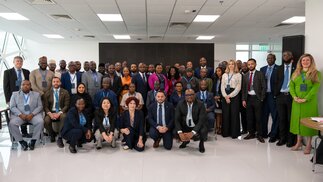
The Arab States region has become an important destination for migrant workers, also from African countries. According to the International Labour Organization (ILO), this region has the highest global share of migrant workers as a proportion of the total workforce, reaching 41.4 per cent in 2019 compared to the global average of just 5 per cent. While these workers boost the social and economic development of both their countries of destination and their countries of origin, their rights and freedoms remain vulnerable. This applies especially for low-skilled migrants.
Legal frameworks gaps, poor regulation and control as well as the “kafala system” – a common practice in the Arab region that ties foreign workers to their employers who guarantee their residence permit – are some of the reasons for ongoing exploitation. It can include inhumane living conditions and working hours, deprivation of free movement, non-payment of wages, violence, sexual abuse, and even death.
Diplomatic missions in destination countries of migrant workers play a critical role in safeguarding and improving the fundamental rights and freedoms of migrant workers. That’s why the ILO, its International Training Center (ITC) and the GIZ Programme “Shaping development-oriented migration” (MEG) organised a four-day training for Consular officers, Diaspora desk officers and Labour Attaches working in African diplomatic missions in Arab countries. The training “Advancing Fundamental Rights, Governance, and Migrant Workers’ Protection – The Role of African Consular Officers and Labour Attachés in the Arab States” took place from 14th to 17th April in Qatar’s capital Doha.
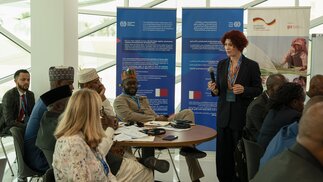
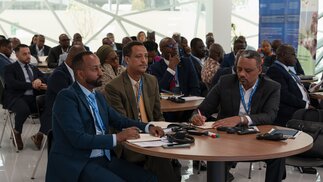
In his welcome speech, MEG Programme Director, David Nii Addy, honoured the role of migrant workers and Africa’s diaspora which contributes significantly to international development in the Arab world and beyond. However, alongside opportunity often comes vulnerability. And those working in the domestic and care sectors – mainly women – are especially vulnerable. “That's why we should collectively strive to advance fundamental rights, strengthen labour migration governance and protect migrant workers,” stated David Nii Addy, adding that these goals demanded coordinated action from governments, international organisations, civil society, the private sector and migrant communities.
The four-day training included a wide range of topics, among them fair recruitment practices, collaboration with local governments, pre-departure training, monitoring compliance with international labour laws and standards, the needs and vulnerabilities of African migrant workers in general and women in particular, complex grievances, and access to justice and remedies.
Based on the training, a handbook to support and strengthen the staff of African diplomatic missions is currently in the making. In addition, before travelling back to their respective country of operation, the training participants established a community of practice in order to further exchange experiences and facilitate mutual support.
On behalf of the German Federal Ministry for Economic Cooperation and Development (BMZ), the MEG Programme is currently implemented in 14 countries. It is aligned with the Global Compact for Migration (GCM) and focuses on strengthening the capacities of key state actors in critical areas such as regular labour migration, regional mobility and ethical recruitment practices. MEG gives special attention to improving the working conditions of migrant women and regulating private recruitment agencies.
Some impressions from training participants
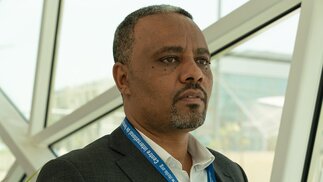
We receive 30-40 cases on a daily basis. Let us collaborate in advocating for the migrant worker's rights.
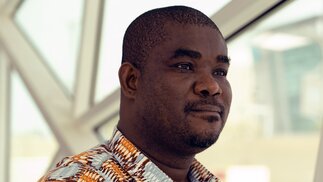
Migrant workers don’t need to be treated specially, they just need to be treated with respect and dignity.

In every consular act of protection, we ensure access to justice, equity and representation in line with international values and standards. This training has been very helpful in reiterating those values and standards.
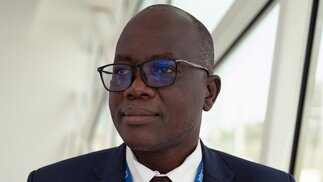
The training has helped me to acquire practical skills to negotiate and draft Bilateral Labour Agreements that are sensitive to gender, culture and social values of different societies.

Prior to this training, I didn’t consider networking with host authorities and stakeholders in destination countries of migrant workers as a vital tool in tackling the abuse of migrant workers’ rights. The training gave me an important insight into networking opportunities and enables me to tackle matters more timely and effectively in future.